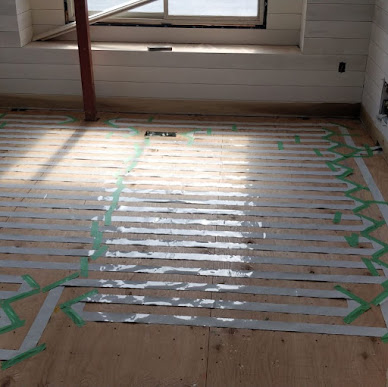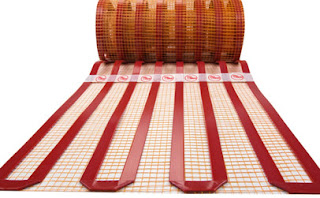Embracing Cozy Luxury: Discover the Magic of In-Floor Heating
Introduction
When
it comes to creating a cozy and inviting living space, few things compare to
the luxurious warmth provided by heated floors. In-floor heating, also known as
radiant floor heating, has been gaining popularity among homeowners for its
ability to transform any room into a comfortable oasis, especially during the
colder months. In this blog post, we will delve into the fascinating world of
in-floor heating systems, exploring their benefits, types, and
installation considerations.
 |
| Floor heating system |
Understanding
In-Floor Heating
In-floor
heating is a method of heating a space by installing a network of heating
elements beneath the floor surface. These heating elements generate radiant
heat, which is transferred evenly across the room, providing a gentle and
consistent warmth from the ground up. This method eliminates the need for bulky
radiators or forced air systems, maximizing both comfort and aesthetics.
Benefits
of In-Floor Heating
2.1
Unmatched Comfort: One of the most significant advantages of in-floor heating
is the exceptional comfort it offers. Unlike traditional heating systems, which
circulate warm air unevenly, heated floors radiate heat evenly throughout the
room. This results in a cozy and pleasant environment, with no cold spots or
drafts.
2.2
Energy Efficiency: In-floor heating systems are highly energy-efficient. By
directly heating the floor and objects in the room, they reduce heat loss and
eliminate wastage associated with traditional heating systems. Additionally,
in-floor heating can be paired with programmable thermostats, allowing precise
temperature control and reducing energy consumption.
2.3
Improved Indoor Air Quality: Unlike forced air systems that blow dust and
allergens into the air, in-floor heating does not rely on air circulation. This
reduces the spread of allergens, creating a healthier and more comfortable
living environment for allergy sufferers.
2.4
Design Versatility: Heated floors offer unmatched design versatility. With no
visible radiators or vents, you have complete freedom in furniture placement
and room layout. This allows for a seamless integration of heating into any
interior design style, from contemporary to traditional.


.jpg)
Comments
Post a Comment